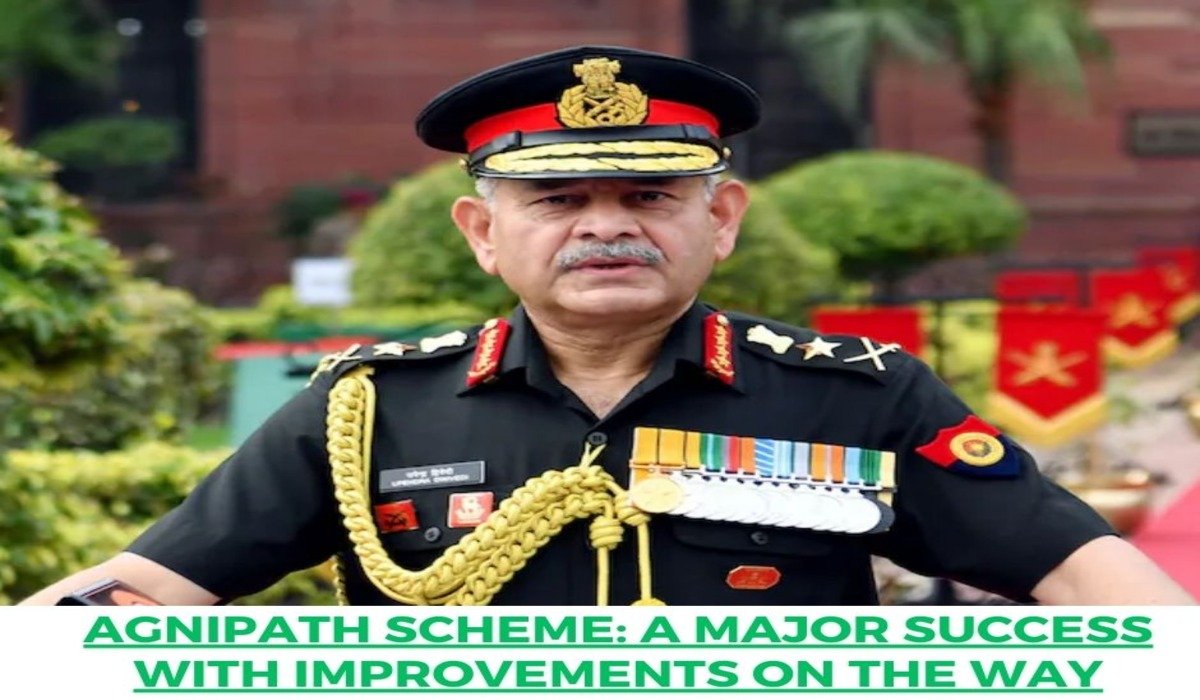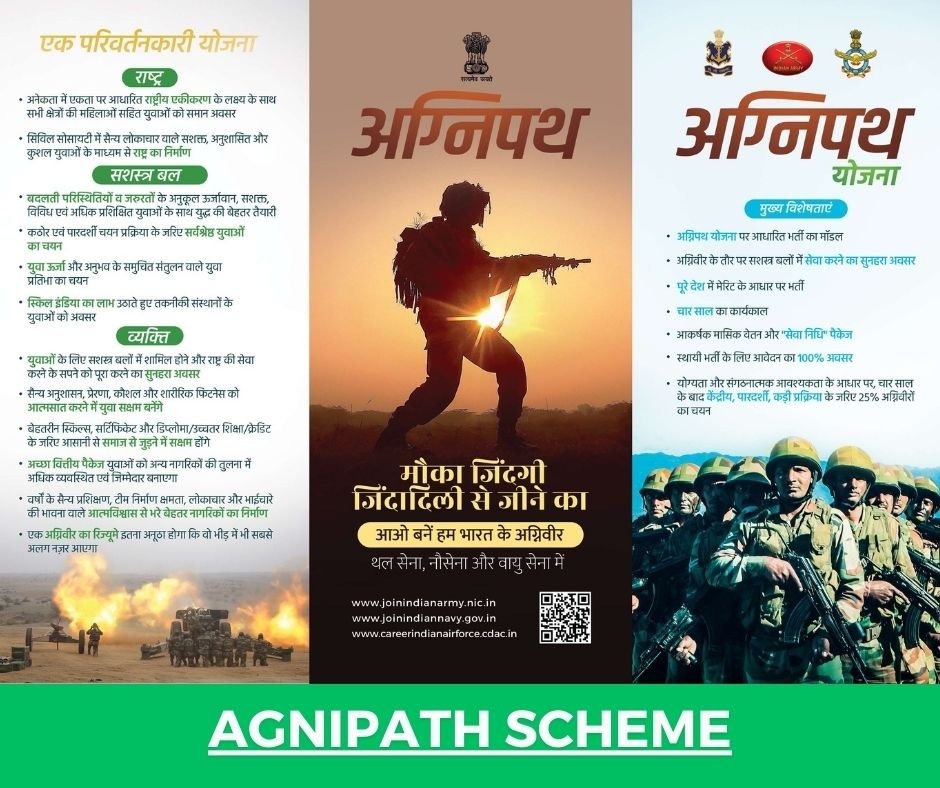
The Agnipath Scheme, launched in 2022, has been called a “Great Success” by General Upendra Dwivedi, the Chief of the Indian Army Staff. Speaking at the India Today Conclave 2025, he praised the enthusiasm, learning ability, and performance of Agniveers. He also mentioned that some aspects of the scheme—such as leave policies, casualty benefits, and the age limit for recruitment—are under review to make it even better.
How Agnipath Scheme is Working Well
General Dwivedi said that Agniveers are eager to learn and adapt, making them highly effective in service. “The scheme is working really well. The quality of recruits we are getting is excellent, and they are quick to learn and execute tasks,” he said.
One big advantage of the Agnipath scheme is that Agniveers are quick learners. Since technology in warfare is changing rapidly, soldiers need to keep updating their skills. The Army Chief explained that Agniveers are better at picking up new things than those who have been in service for a long time. “Older soldiers often struggle to learn new skills, but Agniveers can easily adapt,” he said.
Agniveers also bring fresh energy and motivation to the armed forces. Many of them come from diverse backgrounds and see this opportunity as a stepping stone to a brighter future. Their dedication to training and their willingness to embrace new challenges make them valuable assets to the military.
Changes Being Considered
The Army is looking at making some improvements to the Agnipath scheme. These include:
- Better Leave Policies: The Army wants to make sure that Agniveers get the same leave benefits as regular soldiers so they can rest and recover properly.
- Equal Casualty Benefits: If an Agniveer gets injured or loses their life in service, they should receive the same benefits as regular soldiers. The Army is working on making this happen.
- Raising the Age Limit for Technical Roles: The Army is thinking about increasing the age limit for technical roles from 21 to 23 years. This would help bring in more skilled and educated recruits.
- Higher Retention Rate: Right now, only 25% of Agniveers are retained for long-term service. Many experts believe this is too low, and discussions are ongoing about raising it to 50%.
Will More Agniveers Be Retained?
Currently, only a quarter of Agniveers are allowed to continue in service after their four-year tenure. However, military analysts argue that a 50% retention rate would help maintain combat strength and training continuity.
General Dwivedi said it’s too soon to make a final decision on increasing the retention percentage. “This is a new system, and we need time to understand what works best. We should wait until December 2026 before making any final decisions on increasing retention,” he explained.
The government is also exploring ways to support those who are not retained after four years. This includes offering financial benefits, job placements, and priority in government services, ensuring they have career opportunities even after leaving the military.
What is the Agnipath Scheme?
The Agnipath scheme was started by the Indian government in 2022 to recruit young, tech-savvy personnel into the Army, Navy, and Air Force. It also helps reduce long-term pension costs. Under this scheme, young men and women serve for four years. After that, only 25% are selected for long-term service, while the rest receive a financial package and are given priority in government and private sector jobs.
The scheme was introduced to create a leaner, younger, and more technically skilled military force. By bringing in fresh talent every few years, the Army can ensure that its personnel are always up to date with modern warfare techniques and technology.
Click here to Read more ABOUT AGNIPATH Scheme
Challenges and the Way Forward
Despite its success, some people feel the four-year service period is too short to fully train a soldier. Many experts suggest increasing the retention rate to 50% so that the Army benefits from their training and experience. There are also discussions about improving financial and job opportunities for those who are not retained after four years.
Another challenge is ensuring that Agniveers have good career options after their military tenure. While the government has announced various initiatives to help them transition into civilian jobs, it is crucial to create more partnerships with private companies and public sector units to provide stable employment opportunities.
Additionally, some critics argue that the short tenure may affect morale, as not all Agniveers are guaranteed a long-term military career. To address this, the Army is considering increasing the incentives for those who complete their four-year tenure, including better financial benefits and skill certifications that would help them in civilian jobs.
Why Agnipath Scheme is a Game-Changer
The Agnipath scheme is not just about recruiting soldiers; it is about transforming the way the Indian military functions. By focusing on youth, technology, and adaptability, the scheme ensures that the armed forces remain agile and ready for future challenges.
Many young aspirants see Agnipath as a great opportunity to serve the nation and gain valuable skills. The training they receive prepares them for a variety of careers, whether in defense or the civilian sector. The scheme also instills discipline, leadership, and teamwork—qualities that are highly valued in any profession.

The Future of Agnipath
With ongoing discussions on improving retention rates, benefits, and training structures, the Agnipath scheme is set to evolve in the coming years. The Indian Army’s willingness to review and refine the scheme based on feedback is a positive step toward making it even more effective.
As Agnipath evolves, its impact on the Indian military and youth employment will be closely watched. With possible improvements in retention, benefits, and recruitment policies, the scheme could redefine military service in India, making the armed forces younger, more skilled, and better prepared for the future.
Stay updated with the latest Agniveer Alerts, Results, News, and Updates! 📢 Join our WhatsApp Channel now : Click Here ✅

